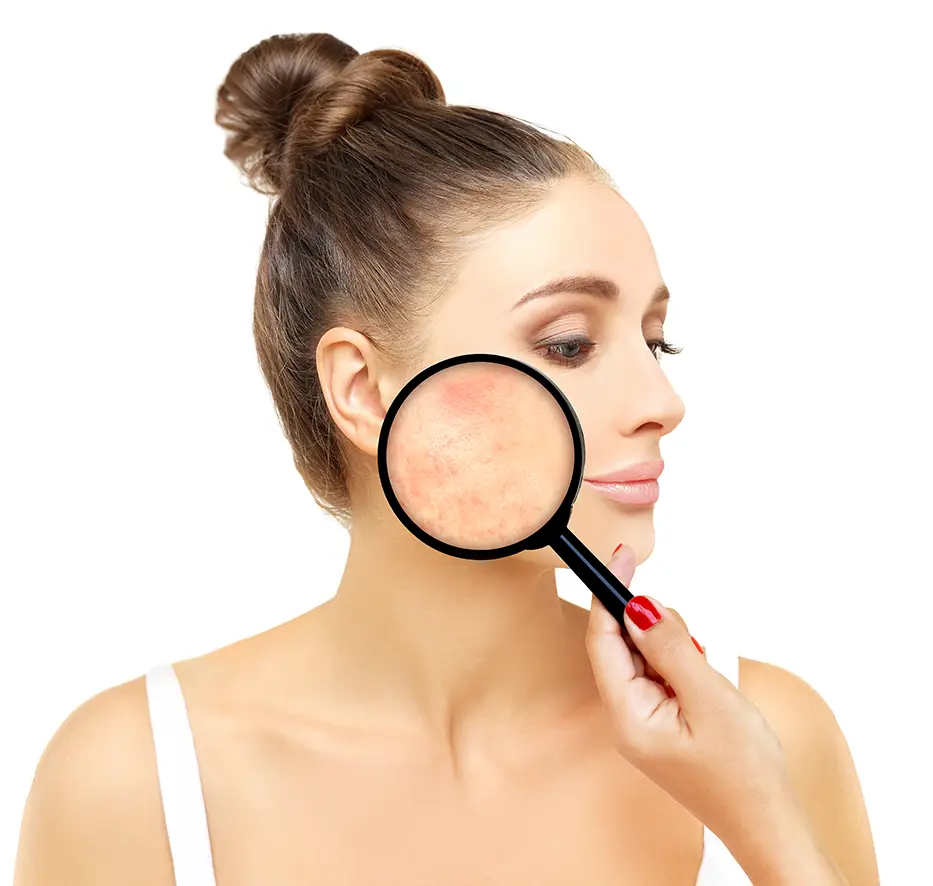When you think of stress, do you automatically picture breakouts along with it? Stress and acne often go hand in hand, especially when you’re dealing with a busy schedule or high-pressure situations like exams, work deadlines, or personal challenges. But does stress actually cause acne?
Research suggests that stress can indeed impact skin health and play significant role in the development and worsening of acne.
What Happens to your Skin when You’re Stressed?
Stress triggers the release of a hormone known as cortisol, which increases the production of oil (sebum) in your skin. While oil naturally helps protect your skin, too much can clog your pores, which is the perfect recipe for breakouts. That’s why people who are already prone to acne might notice flare-ups during stressful times.
Does Stress Damage the Skin Barrier?
Yes! Stress may impair the skin’s ability to maintain its protective barrier. The skin barrier is essential for keeping moisture in and irritants out. When it’s compromised, your skin becomes more vulnerable to external factors like pollution and UV rays, which can aggravate acne. Plus, your skin may become more sensitive, making it prone to redness, irritation, and breakouts.
How Does Stress Cause Inflammation?
Stress doesn’t just increase oil production; it also triggers inflammation throughout the body, including your skin. Inflammation plays a key role in acne development, particularly in more severe forms like cystic acne. Stress-induced inflammation can make your acne more red, swollen, and painful, turning mild breakouts into more serious skin concerns.
Can Chronic Stress Affect Acne Healing?
Absolutely. When you’re constantly stressed, your skin’s ability to heal slows down. This means breakouts stick around longer, and you may even be left with post-acne marks or scarring. Chronic stress keeps your skin in a prolonged state of inflammation, which can lead to persistent acne that’s tough to treat with over-the-counter products.
Why Does my Skin Break Out More in Certain Areas?
It’s common to experience stress-related breakouts in specific areas of your face, such as the jawline, chin, and forehead. These areas are often linked to hormonal changes, which can be amplified by stress. Additionally, stress can make pre-existing skin conditions like eczema or rosacea flare up, leading to increased breakouts for people with acne-prone skin.
How Can I Manage Stress-Induced Acne?
The good news is that adjusting your skincare routine can help you manage stress-related acne. Start with a gentle, non-comedogenic cleanser to avoid stripping your skin of natural oils. Look for ingredients like salicylic acid or benzoyl peroxide to help clear out clogged pores and reduce inflammation. Azelaic acid is another great option for tackling both acne and redness.
Consistency is key. Stick to a regular routine that includes soothing ingredients like
niacinamide to calm inflammation and irritation. And don’t skip a lightweight, hydrating moisturizer—keeping your skin’s barrier intact is crucial to preventing further breakouts.
Can Lifestyle Changes Help With Stress-Related Acne?
Yes, your lifestyle plays a big role in how your skin reacts to stress. Staying hydrated and maintaining a balanced diet rich in vitamins and antioxidants can improve skin health from the inside out. Some people find that reducing their intake of high-sugar or dairy products also helps.
Incorporating stress-relieving activities like yoga, meditation, or even a short daily walk can lower cortisol levels and benefit your skin. And don’t forget about sleep! Poor sleep can increase stress levels and disrupt your skin’s natural healing processes, leading to more breakouts.
When Should I See a Dermatologist?
If your acne doesn’t improve after making changes to your routine or lifestyle, it might be time to consult a dermatologist. They can help determine if stress is the main factor, or if other underlying conditions are contributing to your acne. With the right guidance and treatments, managing stress-related acne becomes a lot easier.





